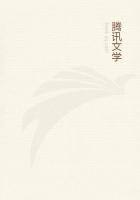[155] Arab.'Bazi,'Pers.'Baz'(here Richardson is wrong s.v.);a term to a certain extent generic,but specially used for the noble Peregrine (F. Peregrinator) whose tiercel is the Shahin (or'Royal Bird'). It is sometimes applied to the goshawk (Astur palumbarius) whose proper title,however,is Shahbaz (Kinghawk). The Peregrine extends from the Himalayas to Cape Comorin and the best come from the colder parts: in Iceland I found that the splendid white bird was sometimes trapped for sending to India. In Egypt'Bazi'is applied to the kite or buzzard and'Hidyah'(a kite) to the falcon (Burckhardt's Prov.
159,581 and 602). Burckhardt translates'Hidayah,'the Egyptian corruption,by'an ashgrey falcon of the smaller species common throughout Egypt and Syria.'
[156] Arab.'Hijl,'the bird is not much prized in India because it feeds on the roads. For the Shinnar (caccabis) or magnificent partridge of Midian as large as a pheasant,see'Midian Revisted'ii. 18.
[157] Arab.'Suf;'hence'Sufi,'=(etymologically) one who wears woollen garments,a devotee,a Santon;from =wise;
from =pure,or from Safa=he was pure. This is not the place to enter upon such a subject as'Tasawwuf,'or Sufyism;that singular reaction from arid Moslem realism and materialism,that immense development of gnostic and Neoplatonic transcendentalism which is found only germinating in the Jewish and Christian creeds. The poetry of OmariKhayyam,now familiar to English readers,is a fair specimen;and the student will consult the last chapter of the Dabistan'On the religion of the Sufiahs.'
The first Moslem Sufi was Abu Hashim of Kufah,ob. A. H. 150=767,and the first Convent of Sufis called'Takiyah'(Pilgrimage i.124) was founded in Egypt by Saladin the Great.
[158] i.e. when she encamps with a favourite for the night.
[159] The Persian proverb is'Margiamboh jashni dared'death in a crowd is as good as a feast.
[160] Arab.'Kanat',the subterranean watercourse called in Persia'Kyariz.'Lane (ii. 66) translates it'brandish around the spear (Kanat is also a canelance) of artifice,'thus ****** rank nonsense of the line. AlHariri uses the term in the Ass. of the Banu Haram where'Kanat'may be a pipe or bamboo laid underground.
[161] From AlTughrai,the author of the Lamiyat alAjam,the'Lay of the Outlander;'a Kasidah (Ode) rhyming in Lam (the letter'l'being the rawi or binder). The student will find a new translation of it by Mr. J. W. Redhouse and Dr. Carlyle's old version (No. liii.) in Mr. Clouston's'Arabian Poetry.'Muyid alDin alHasan Abu Ismail nat. Ispahan ob. Baghdad A.H. 182)
derived his surname from the Tughra,cypher or flourish (over the'Bismillah'in royal and official papers) containing the name of the prince. There is an older'Lamiyat alArab'a preIslamitic Lpoem by the'brigandpoet'Shanfara,of whom Mr. W. G. Palgrave has given a most appreciative account in his'Essays on Eastern Questions,'noting the indomitable selfreliance and the absolute individualism of a mind defying its age and all around it.
AlHariri quotes from both.
[162] The words of the unfortunate Azizah,vol. ii.,p. 323.
[163] Arab.'Hawi'=a juggler who plays tricks with snakes: he is mostly a Gypsy. The'recompense'the man expects is the golden treasure which the ensorcelled snake is supposed to guard. This idea is as old as the Dragon in the Garden of the Hesperidesand older.
[164] The'Father of going out (to prey) by morning';for dawn is called Zanab Sirhan the Persian Dumigurg=wolf's tail,i.e.
the first brush of light;the Zodiacal Light shown in morning.
Sirhan is a nickname of the wolfGaunt Grim or Gaffer Grim,the German Isengrin or Eisengrinus (icy grim or iron grim) whose wife is Hersent,as Richent or Hermeline is Mrs. Fox. In French we have lopez,luppe,leu,e.g.
Venant a la queue,leu,leu,i.e. going in Indian file. Hence the names D'Urfe and SaintLoup.
In Scandinavian,the elder sister of German,Ulf and in German (where the Jews were forced to adopt the name) Wolff whence'Guelph.'He is also known to the Arabs as the'sire of a shelamb,'the figure metonymy called'Kunyat bi'lZidd'(lucus a non lucendo),a patronymic or byname given for opposition and another specimen of'inverted speech.'
[165] Arab.'Bint' Arus'= daughter of the bridegroom,the Hindustani Mungus (vulg. Mongoose);a wellknown weasellike rodent often kept tame in the house to clear it of vermin. It is supposed to know an antidote against snakepoison,as the weasel eats rue before battle (Pliny x. 84;xx. 13). In Modern Egypt this viverra is called'Kitt (or Katt) Far'aun'= Pharaoh's cat:
so the Percnopter becomes Pharaoh's hen and the unfortunate (?)
King has named a host of things,alive and dead. It was worshipped and mummified in parts of Ancient Egypt e.g.
Heracleopolis,on account of its antipathy to serpents and because it was supposed to destroy the crocodile,a feat with AElian and others have overloaded with fable. It has also a distinct antipathy to cats. The ichneumon as a pet becomes too tame and will not leave its master: when enraged it emits an offensive stench. I brought home for the Zoological Gardens a Central African specimen prettily barred. Burckhardt (Prov. 455)
quotes a line:
Rakas' Ibn Irsin wa zamzama'lNimsu,(Danceth Ibn Irs whileas Nims doth sing)
and explains Nims by ichneumon and Ibn Irs as a'species of small weasel or ferret,very common in Egypt: it comes into the house,feeds upon meat,is of gentle disposition although not domesticated and full of gambols and frolic.'

